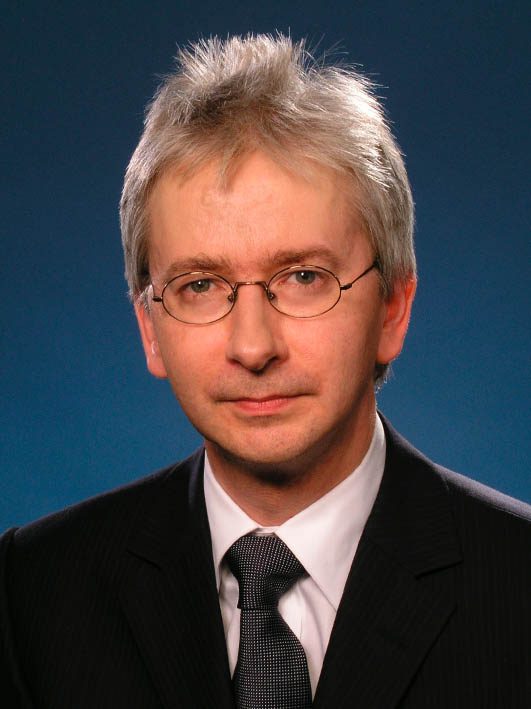Description
Social aspects of computing, as they appear in group decision making, fair distribution, equity of utilities etc. can often not be expressed by simple function evaluations alone. Relational mathematics, which is studied in mathematical economics and social choice theory, provides a rich and general framework and appears to to be a natural and direct way to paraphrase corresponding optimization goals, to represent user preferences, to justify fairness criterions, or to valuate utility. In this lecture, we will focus on the specific application aspects of formal relations for design, control and data mining problems. The lecture will have two main parts. In the first part, we want to recall some concepts from mathematical economics, esp. the Arrow theorem and the relational approach by Suzumura, and from this present a suite of relations that are able to represent fairness as mediator between user preference and application domain dominance. Starting with the "classical" fairness relations maxmin fairness, proportional fairness and lexicographic minimum, we can recover their mutual relationships and their design flexibility in order to define further relations, with regard to e.g. multi-fairness, ordered fairness, self-weighted fairness, grouped fairness, and fuzzy fairness. In the second part, we want to illustrate and demonstrate the application of these concepts for basic data processing and optimization tasks, for example routing path selection, congestion control, wireless channel allocation, and relaying from the network design and control domain. We will also study the tractability of related problems, and we will present generic approaches by meta-heuristic algorithms, esp. algorithms obtained from suitable modifications of evolutionary multi-objective optimization algorithms that can cope with a broad spectrum of search and approximation problems, and which are not generally affected by the No Free Lunch theorems.
Prerequisities
At the beginning, the lecture will refer to some abstract mathematical concepts, while later parts will focus on the application of these concepts. All needed mathematical prerequisites, esp. elementary set theory will be recalled.Preparation
Some recommended readings:- L. E. Dubins and E. H. Spanier, "How to cut a cake fairly," The American Mathematical Monthly, vol. 68, no. 1, pp. 1-17, 1961.
- Kotaro Suzumura, "Rational choice, collective decisions, and social welfare," Cambridge University Press, 1983, 2009.
- Gunther Schmidt, "Relational Mathematics," Cambridge University Press, 2011.
- Christoph Boergers, "Mathematics of Social Choice: Voting, Compensation, and Division," SIAM, 2010.
Syllabus
Part I: Fairness Relations
- Mathematical Economics: Arrow Theorem, Suzumura Rationalizability
- Recalling Relations and Maximum Sets
- Bottleneck Flow Control and Maxmin/Leximin Fairness
- Parabolic Fairness
- Utility, Proportional Fairness and some variants
- Fuzzy Fairness Relations
- Design your own Fairness Relation at home...
Part II: Meta-Heuristic Approaches and Applications
- Relational Evolution
- Fair Routing
- Multi-Fairness and Catastrophy Avoidance
- Multi-Relational Data Analysis
- No Free Lunch Theorems and Relational Optimization
Lecturer
Mario KoeppenProfessor, Network Design and Research Center, Kyushu Institute of Technology, 680-4, Kawazu, Iizuka, Fukuoka 820-8502 JAPAN
Homepage: http://science.mkoeppen.com
Bio:
 |
Mario Koeppen was born in 1964. He studied physics at the Humboldt-University of Berlin and received his master degree in solid state physics in 1991. Afterwards, he worked as scientific assistant at the Central Institute for Cybernetics and Information Processing in Berlin and changed his main research interests to image processing and neural networks. From 1992 to 2006, he was working with the Fraunhofer Institute for Production Systems and Design Technology. He continued his works on the industrial applications of image processing, pattern recognition, and soft computing, esp. evolutionary computation. During this period, he achieved the doctoral degree at the Technical University Berlin with his thesis works: "Development of an intelligent image processing system by using soft computing" with honors. He has published around 150 peer-reviewed papers in conference proceedings, journals and books and was active in the organization of various conferences as chair or member of the program committee, incl. the WSC on-line conference series on Soft Computing in Industrial Applications, and the HIS conference series on Hybrid Intelligent Systems. He is founding member of the World Federation of Soft Computing, and also member of the editorial board of the Applied Soft Computing journal, the Intl. Journal on Hybrid Intelligent Systems and the Intl. Journal on Computational Intelligence Reserach. In 2006, he became JSPS fellow at the Kyushu Institute of Technology in Japan, and in 2008 Professor at the Network Design and Reserach Center (NDRC) of the Kyushu Institute of Technology, where he is conducting now research in the fields of multi-objective optimization, digital convergence and multimodal content management. |